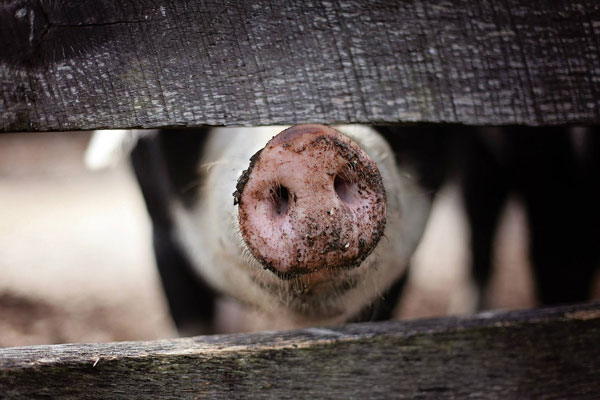Bird flu detected in pigs at Crook County Farm in Oregon

[Pig. Photo Credit to Pixabay]
On Wednesday, October 30th, a case of bird flu was detected in pigs at a Crook County farm in Oregon.
The spread of the flu started last week when the virus was detected in birds and chickens at the farm.
Subsequently, pigs near the poultry were found to be infected with the flu after testing.
As the specific strain remains unidentified, efforts have been made to prevent its spread: quarantining pigs from other animals and culling all livestock infected with the virus.
While infected animals were culled, livestock and their owners were separated to prevent animal-to-human transmission.
Currently, only one person nationwide has contracted the flu from an animal.
According to Dr. Dean Sidelinger, Oregon's state epidemiologist, there are no signs of infection among the farm’s owner, and no evidence of human-to-human transmission from this outbreak.
The risk of disease spreading outside the Crook County farm is minimal, as their products are not for sale and therefore unavailable to the public.
Moreover, public health risk remains low since people exposed to bird flu through Oregon backyard flocks have not contracted the virus.
Health officials recommend thoroughly cooking poultry and eggs, and pasteurizing milk to prevent infections from pathogens like bird flu and E.coli.
The strain is known to circulate among wild birds and has affected various animals.
Although this virus hasn’t been reported in dairy cattle in Oregon, it is still a great concern within the community.
The outbreak in Oregon extends beyond Crook County.
A separate outbreak recently occurred at a Clackamas County poultry farm, resulting in the culling of 150 birds to contain the spread.
The infection in pigs has raised concern about potential mutations should bird and human flu strains combine, though no evidence currently suggests this possibility.
According to Chris Rademacher, a veterinary medicine expert at Iowa State University, this is considered an isolated case since commercial pork producers already maintain separation between poultry and pigs to prevent transmission.
State officials are working to prevent further spread to the community and have issued advice to reduce infection risk.
Recommended precautions include keeping livestock away from wild animals, especially waterfowl, avoiding the mixing of different livestock species, and maintaining hygiene by regularly sanitizing bodies and equipment.
While investigations continue to identify the specific strain and await development of targeted treatments, farm owners and farmers, who have the most frequent contact with livestock, must follow these protocols and maintain distance from their animals.

- Dongha Kim / Grade 12
- Branksome Hall Asia

![THE HERALD STUDENT REPORTERS [US]](/assets/images/logo_student_us.png)
![THE HERALD STUDENT REPORTERS [Canada]](/assets/images/logo_student_ca.png)
